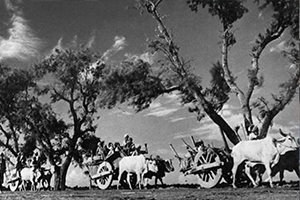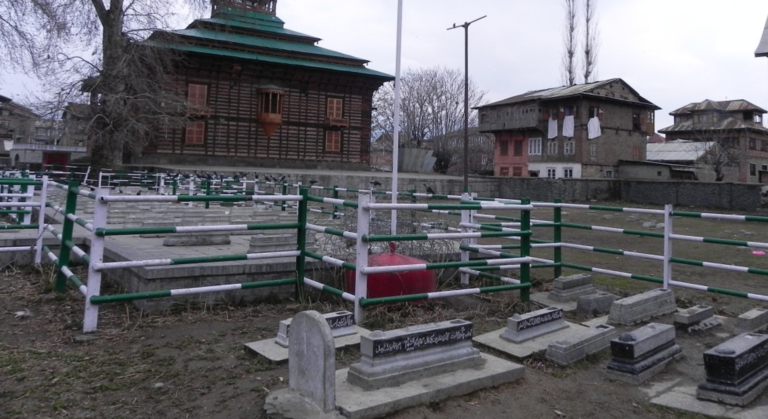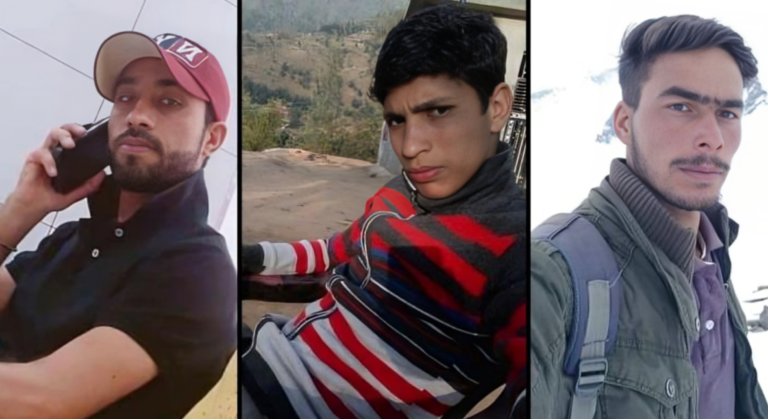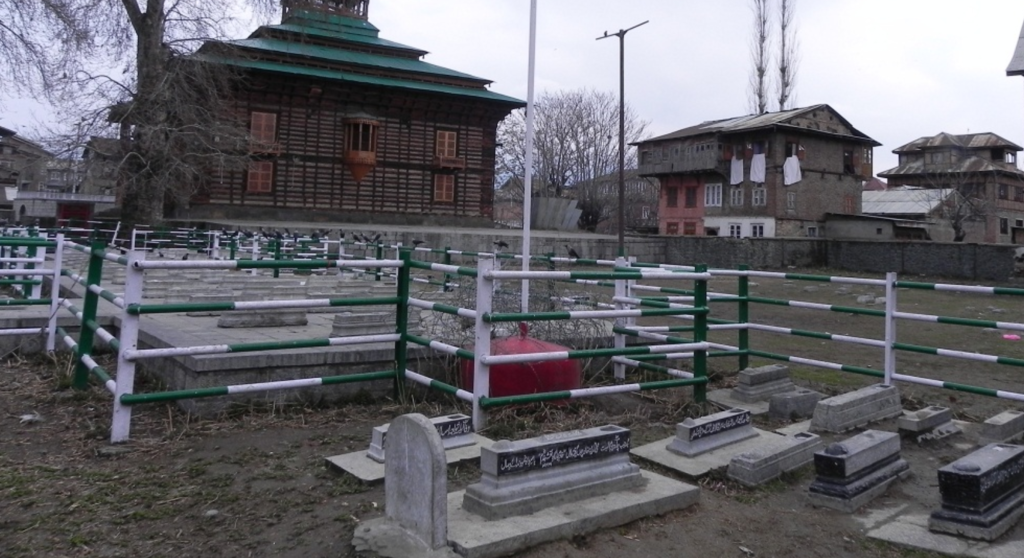
Remembering the Fallen Heroes
Shaheed Abdul Hakeem
Tahir Aijaz
Mang town has a unique significance in the context of Kashmir’s fight for freedom where that old tree continues to give a message to the visitors that:
چراغِ ظلم و ظالم تا دم محشر نمے سوزد
اگر سوزوشب سوزد شبِ دیگر نمے سوزد
This tree was young when dozens of Kashmiris were hanged from it during the Dogra rule, their skin peeled off, marking a new chapter of brutality in human history. However, this brutal era of Dogra tyranny didn’t last long. The sacrifices of Shaheed Sabaz Ali and his associates did not go in vain, and Mang was eventually freed from the clutches of oppression.
Years later, in 1995, a brave man named Abdul Hakeem, also known as Abdul Rehman, from the same region, rose to fight against the Indian occupation of Kashmir. He joined the ranks of Hizbul Mujahideen, crossing the ceasefire line under the leadership of Commander Sher Khan (Chitra Topi Bagh) and stationed himself in the Lolab area of northern Kashmir’s Kupwara district. Allah had gifted him with such talent that within a short span of time, he successfully achieved high-profile military targets in the valley.
During the tumultuous times of 1995-96, Abdul Rehman carried out successful operations against Indian military and renegades, thereby boosting the morale of the Mujahideen across the valley. Besides executing daring military operations against occupational forces, he played a key role in other organizational activities, helping to establish the group as a formidable force in northern Kashmir. Known for his integrity, honesty, and truthfulness, this great commander exemplified humility and friendliness. This fresh bud from the age-old tree of Mang spread its freshness throughout the valley.
As a member of the pious Ismai Jamiat-e-Talaba, Abdul Rehman nurtured the occupied land with his blood, reminiscent of the history of our ancestors in Islam. His legacy reminds us of the sacrifices made by those who came before us.
On several occasions, Abdul Rahman was granted permission to return to the base camp, but he was always eager to go elsewhere. Each time, he refused his comrades’ offer. I vividly remember Abdul Rahman’s words to Faisal Bhai from Padr Mastu Azad Kashmir when bidding him farewell towards the base camp: “I did not come here to go back.” Abdul Rahman never returned; instead, he went further, so far that he began to see his ultimate destination clearly. This is in line with the law of nature: “Man attains only what he strives for.” Abdul Rahman achieved what he aspired to.
In mid-1998, a group of comrades from Hizbul Mujahideen separated and formed a new group named Al-Badr. When this news reached the battlefield, Abdul Rahman was deeply troubled. He found it hard to accept that his comrades had split from Hizbul Mujahideen. He expressed his sentiments with these words: “May Allah never show me the day when I have to choose between joining Al-Badr or staying with Hizbul Mujahideen.”
In the end, he never had to make that choice. Most of his comrades had already attained martyrdom under the banner of Hizbul Mujahideen, and Allah fulfilled his wish. The Al-Badr organization was formed on the Kashmir front in October 1998, while Abdul Rahman was martyred in September 1998. His place of martyrdom was Gulistan-e-Anwari, Warnov Lolab, the hometown of the renowned Islamic scholar Anwar Shah Kashmiri, where he fought his last battle against the enemy. When his ammunition ran out and he was injured, knowing his martyrdom was imminent, Abdul Rahman handed over his weapons to his comrade Mujahid Shaheen from Kuligam Lolab. Even in his final moments, he was concerned that his weapon should not fall into the enemy’s hands. He kept a few hand grenades and a pistol for himself. Detached from the world, the son of Mang’s Niaz Muhammad, a true patriot of the Milat-e-Islamia, departed from us with these words:
شہادت ہے مطلوب و مقصود مومن
نہ مالِ غنیمت نہ کشور کشائی
Every eye was moist in the camps of Al-Fajar, Al-Hadeed and Al-Mudasir Battalions. On the martyrdom of such a noble fighter, Ameer-e-Hizb, while paying glorious tributes to the martyr, said:
گلستان انوری کے ہر چمن میں ہے سکوت
نہ چہک نہ مہک ہے، ہے کدھر آہ و گلاب
کون دہلائیگا صحرا کون مہکائے چمن
کون تڑپائے دلوں کو ہے کدھر وہ اضطراب
افسردہ ہے غمناک ہے یہ وادئ لولاب
Editor's Pick
Recent Reviews
Kashmir Martyrs’ Day commemorates the July 1931 incident, fueled by oppressive Dogra rule and rising discontent among Muslims. Protests erupted against injustices, leading to the killing of 22 demonstrators by state forces. This pivotal event ignited Kashmir’s struggle for rights and justice, marking a significant chapter in its history.




